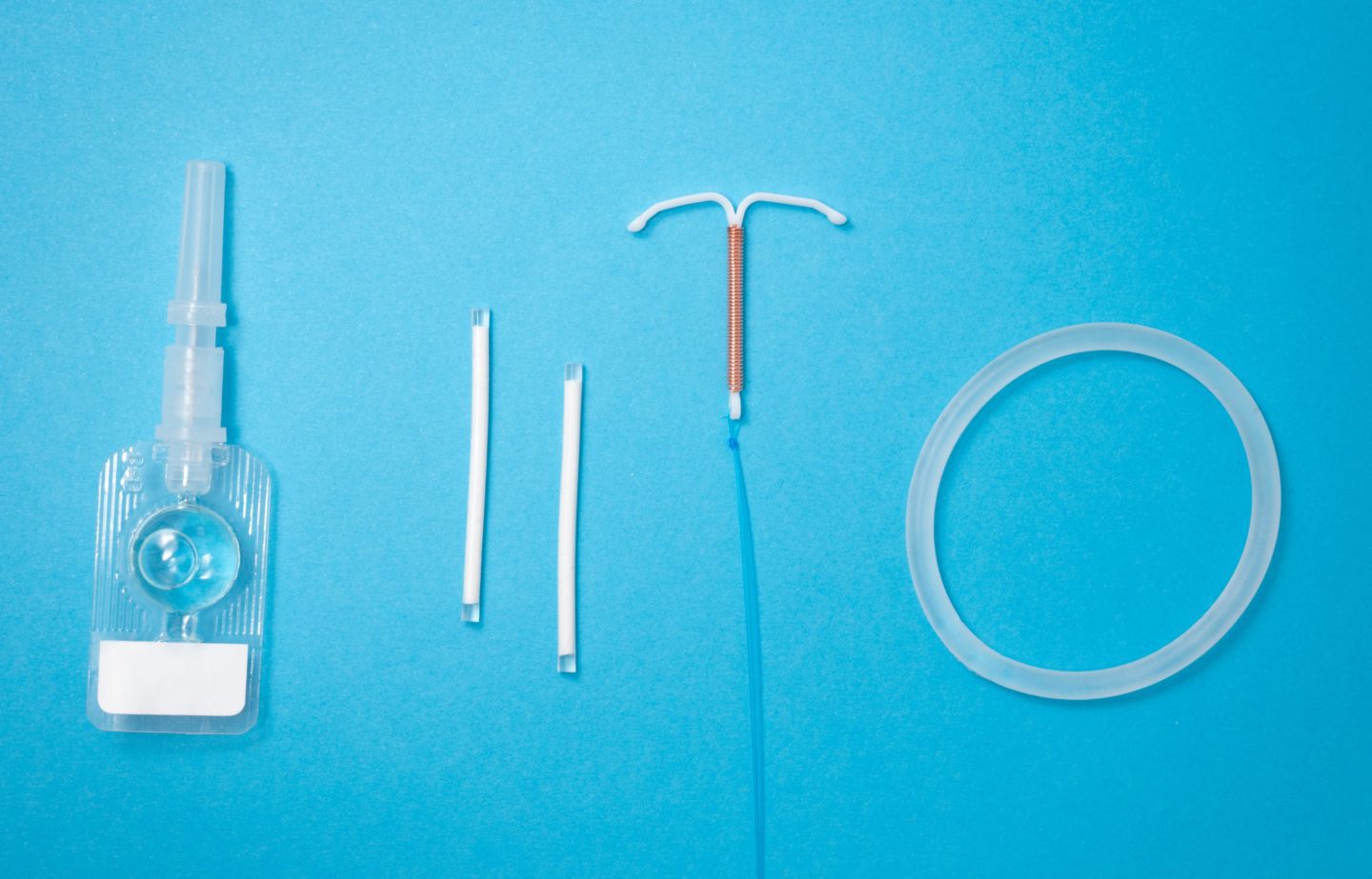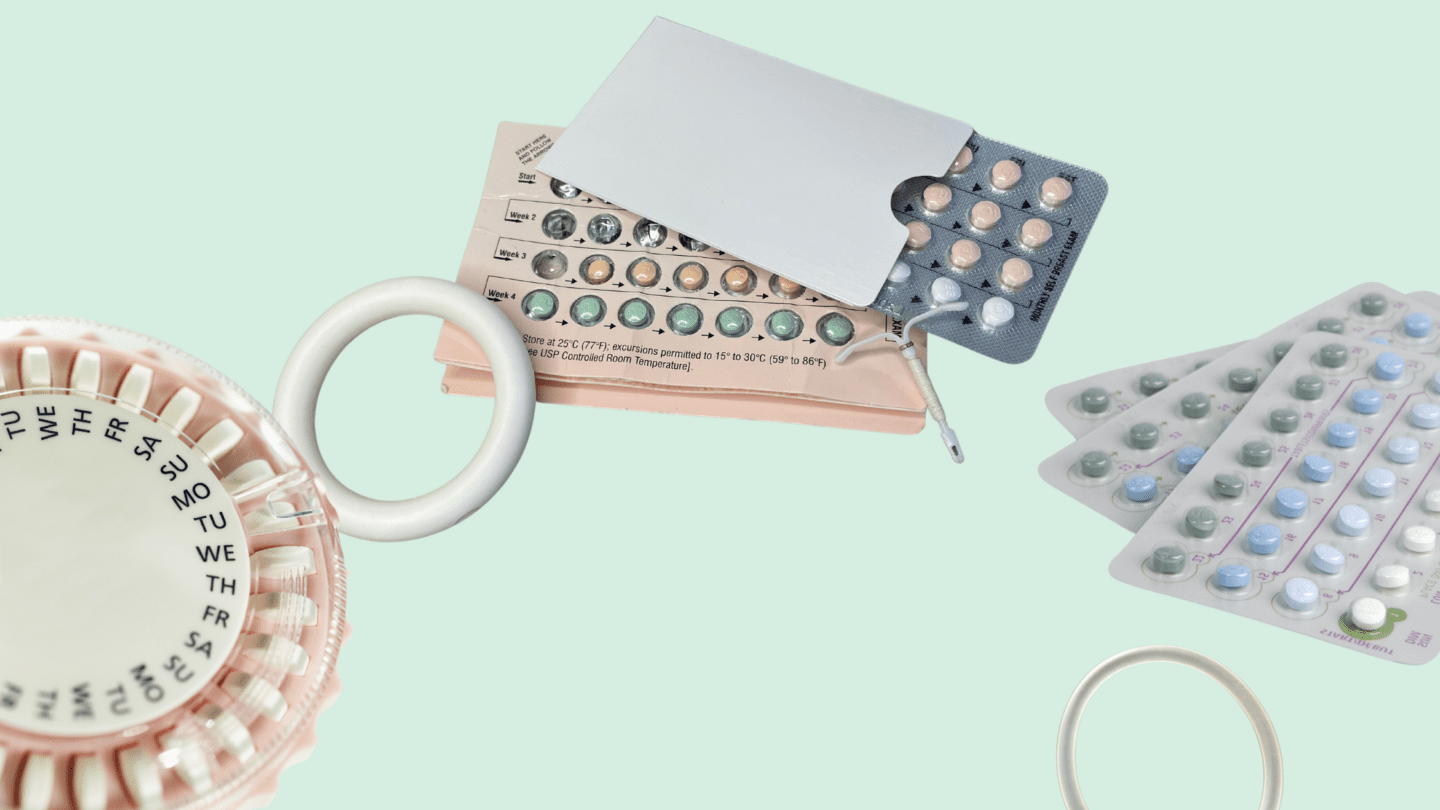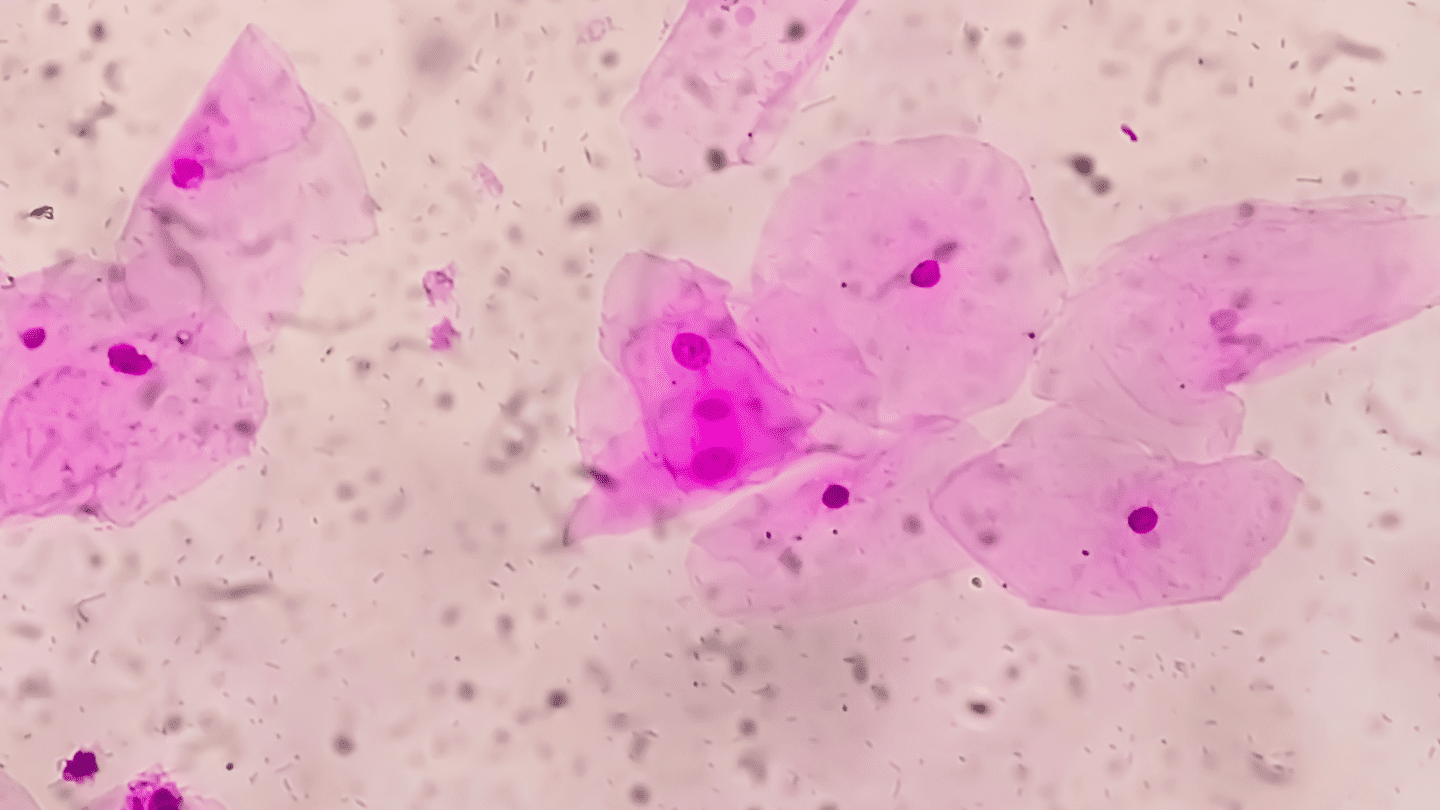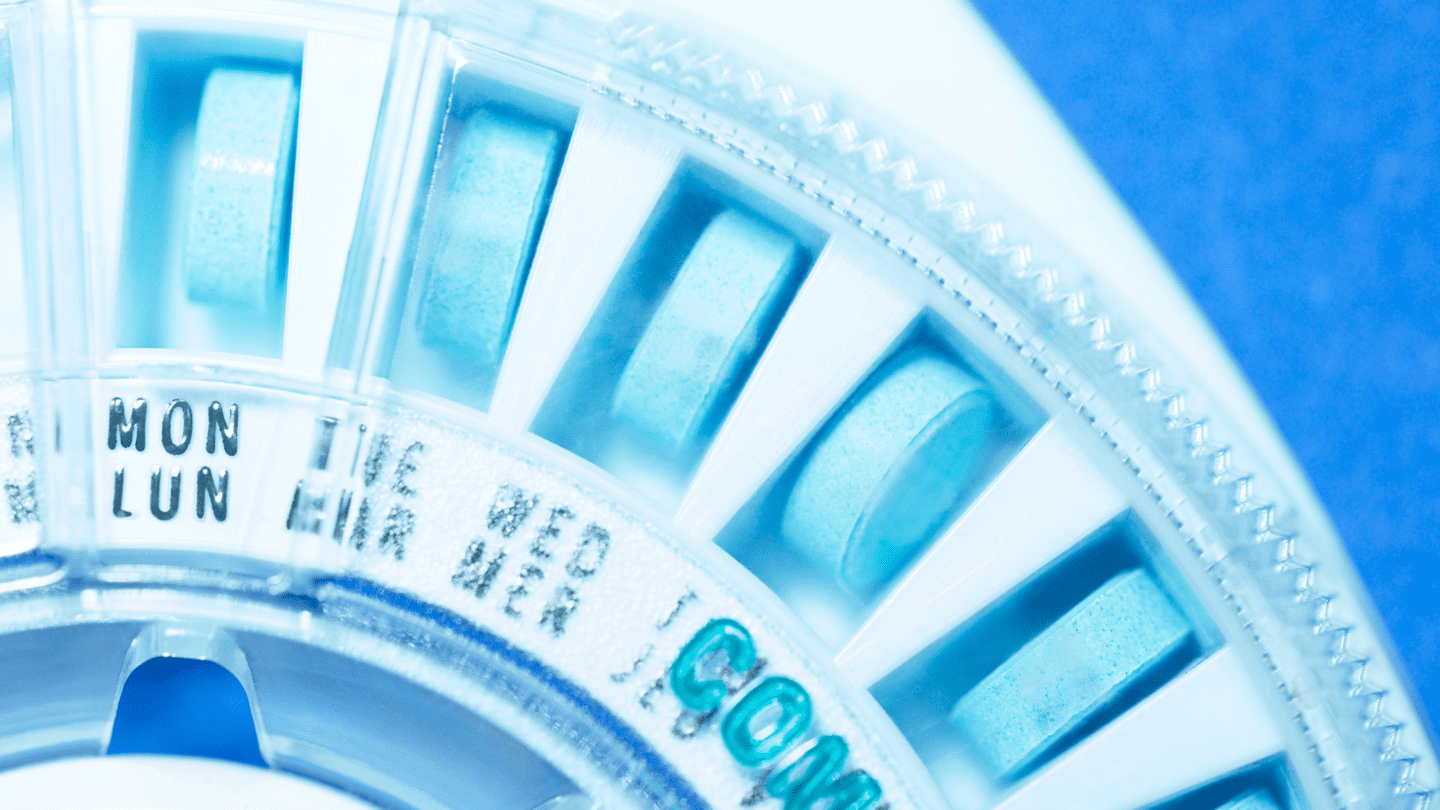If your sex education was anything like mine, you probably learned that works by “tricking your body into thinking it’s pregnant.” On some level, that makes sense: You can’t get pregnant if you’re already pregnant. But how does the body know it’s pregnant, anyway? And how does mimic that?
The answer comes down to how hormones like and – which are in many hormonal contraceptives, and change during a pregnancy – affect your , , and more. Here’s a rundown of what these sex hormones are up to in your body, and how they can prevent pregnancy.
Hormones control ovulation
The main way works is by preventing ovulation. Your normally release one egg each menstrual cycle, but if you’re pregnant or on hormonal birth control, the eggs just sit tight in their follicles. No egg, no fertilization, no pregnancy.1
During a typical (that is, not pregnant, not on ) cycle, ovulation is triggered by cyclical hormonal fluctuations.2 The four key players are the hormones , , (), and ().
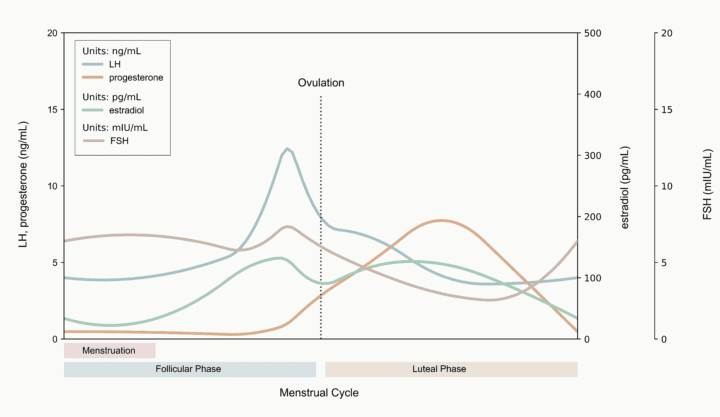
At the beginning of your cycle – the “menses phase” – and are low and steady, which triggers your period. Low levels of these two hormones also tell your pituitary gland to start producing and .
As levels rise, they stimulate the to produce and some , which in turn triggers a surge in and some of the follicles in your to mature. This is the “follicular phase.”
Read more: Does Mess with Your Hormones?
As the follicles mature, one gets ready to release an egg, and levels spike.2 peaks and continues to rise, which triggers the release of an egg into the fallopian tubes, where it starts making its way toward the . This is ovulation.
Meanwhile, levels rise, which causes the lining of your to thicken in preparation for a potential pregnancy. Back in the , the now-empty follicle keeps producing and .
An egg only lasts for about 12-24 hours after ovulation.1 After that, if you’re not pregnant, the follicle gives up and stops producing hormones.3 and drop, you have your period, and the cycle repeats. But if you are pregnant – the egg is fertilized and implants into the – and continue to be released.4 The triggers more build-up of the uterine lining, and your cervical mucus thickens to prevent pathogens, or any more sperm, from entering the .5
Like what you’re reading? Get the latest straight to your inbox 💌
How prevents ovulation
By providing steady doses of hormones, keeps your levels steady and slightly elevated, like they are after ovulation while your body prepares for potential pregnancy. If levels don’t drop off at the end of your cycle, and don’t increase, which means the follicle doesn’t get the signal to mature and release an egg. In short, keeping levels stable prevents ovulation. ( helps a little here, too, but is the main driver.)
How thickens cervical mucus
Hormonal has a few extra pregnancy-preventing effects, too. During a typical cycle, your cervical mucus thins during ovulation. This makes conditions extra-hospitable for sperm to pass through to the .5
The hormones in prevent this from happening by keeping cervical mucus thick and sticky so sperm have a harder time swimming.7-8 Again, this mimics what would happen if you were pregnant – a pregnant body doesn’t want any more sperm coming through.
Is adyn right for you? Take the quiz.
How changes the uterine lining
Lastly, triggers changes to your , aka the lining of your . Your needs to thicken before a fertilized egg can implant, and so this normally occurs after ovulation to support a potential pregnancy.2 But by preventing ovulation, also stops the from thickening. That means if there was still somehow a fertilized egg in your , it wouldn’t be able to implant and start a pregnancy.
Hormonal contraceptives are effective
Does “trick your body into thinking it’s pregnant?” Only sort of.
The sex hormones in hormonal do prevent ovulation and thicken the cervical mucus, just like they would if you were pregnant. But they also keep the uterine lining thin to make it inhospitable for a pregnancy, which is the opposite of what would happen if you were pregnant.
In the end, the most important thing to remember is that is highly effective, which means at least 98% effective at preventing pregnancy, assuming perfect use. Forms of like the shot, implant, pill, ring, and IUDs all get the highly effective stamp of approval, and the hormones in don’t have long-term effects. Which method is right for you depends on your unique biology: You deserve the you want without side effects bringing you down.
-
- Cleveland Clinic. “Ovulation.” ClevelandClinic.org (2022 Jul 08): Accessed 2023 Jan 27.
- Reed, Beverly G., and Bruce R. Carr. “The normal menstrual cycle and the control of ovulation.” Endotext [Internet] (2015; Updated 2018 Aug 5).
- Cleveland Clinic. “Corpus Luteum.” ClevelandClinic.org (2021 Oct 07): Accessed 2023 Jan 27.
- Johns Hopkins Medicine. “Hormones During Pregnancy.” HopkinsMedicing.org (N.D.): Accessed 2023 Jan 27.
- Han, Leo, Rebecca Taub, and Jeffrey T. Jensen. “Cervical mucus and contraception: what we know and what we don’t.” Contraception 96.5 (2017): 310-321.
- Cooper, Danielle B., Preeti Patel, and Heba Mahdy. “Oral contraceptive pills.” StatPearls [Internet] (2017).
- Chappell, Catherine A., et al. “The effects of reproductive hormones on the physical properties of cervicovaginal fluid.” American Journal of Obstetrics and Gynecology 211.3 (2014): 226-e1.
- Lewis, Radha A., et al. “Effects of the levonorgestrel-releasing intrauterine system on cervical mucus quality and sperm penetrability.” Contraception 82.6 (2010): 491-496.


